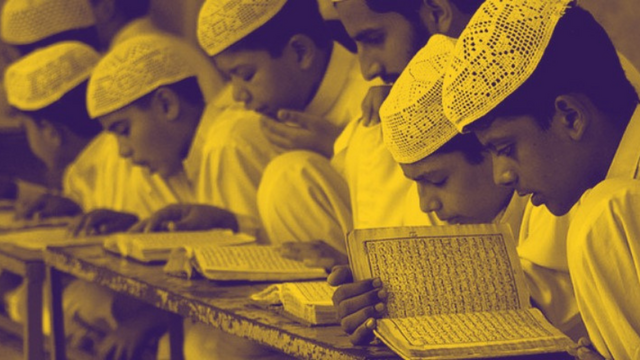Assam Education and Finance Minister Himanta Biswa Sarma has said that the government will shut down all state-run madrasas and Sanskrit tols (schools) as it cannot allow teaching religious education with public money, reported IANS.
Sarma further added that the private madrasas and Sanskrit schools would be allowed to run, however, their syllabus would be ‘monitored’. As part of the move, 48 contractual teachers from the madrasas are likely to be shifted to schools under the Education Department.
According to a report in The Telegraph, the government had made the announcement in the Assembly on Tuesday, during a discussion on budgetary allocation for the education department when some legislators were demanding provincialisation of madrassas.
Sarma had said that the madrasas could not be provincialised as the state was adopting a modern education system.
There are 614 government-aided recognised madrassas in Assam – 57 for girls, three for boys, and 554 co-educational, with 17 of them Urdu medium. There are nearly 1,000 recognised Sanskrit tols, of which around 100 are government-aided. The state government spends about Rs 3-4 crore on madrassas and about Rs 1 crore on Sanskrit tols in the state annually.
In addition, there are around 2000 madrasas that are not run with official help in the state. These are financed mainly through donations from private donors and organisations.
The move to shut down the institutions was met with criticism from All India United Democratic Front chief Badruddin Ajmal and the All Assam Minority Students’ Union (AAMSU).
Ajmal said that if the BJP-led government would close down the madrasas, his party would start them again after coming to power following next year’s Assembly elections.
AAMSU said the decision was in the line of the government’s agenda of “harassing Muslims and denying them basic rights” as guaranteed in the Constitution. “Madrasas don’t only teach Islamic scriptures and Arabic, they also teach subjects like any regular school,” it had said in a statement.
The government’s decision has also received criticism from Hindu organisations “Sanskrit is part of our culture,” Janardhan Deva Goswami, the Satradhikar of the Dakhinpat Satra in Majuli, had said. “We cannot accept this decision.”
Related











































